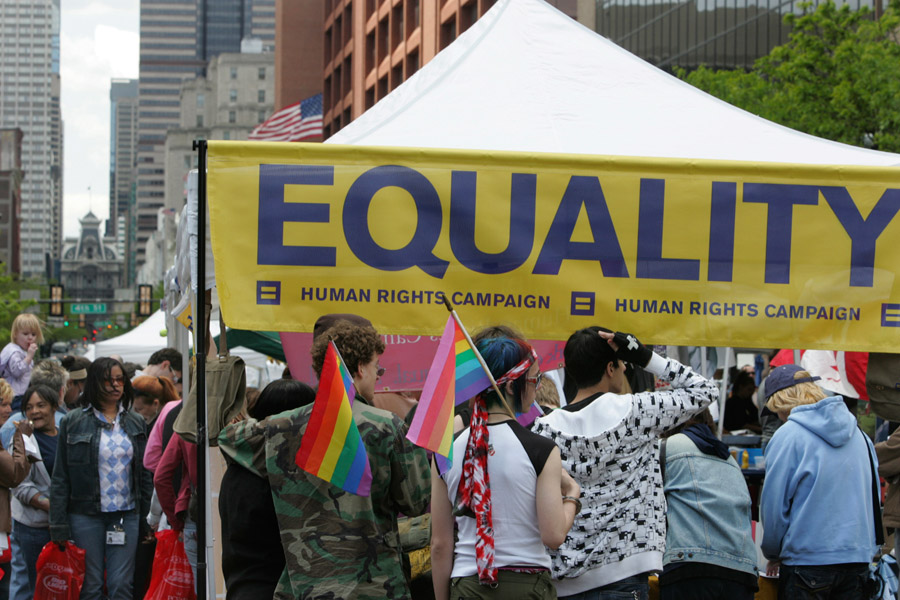A Gay Mormon Presents at the International Equality Conference

The International Equality Conference held its 14th National Religious Colloquy this year in Philadelphia, at the University of Arts on May 3, 2014. For the first time in the history of the conference, a member of the Church of Jesus Christ of Latter-day Saints was invited to serve on the National Religious Colloquy panel, discussing the state of the church with relation to the LGBT community. The panel discussed how “Reform and changes in tenor are transforming the relationship between homosexuality and the Roman Catholic Church, the Mormon Church and the United Methodist Church.”
Participants included: Rabbi Linda Holtzman, former rabbi of Congregation Mishkan Shalom (Philadelphia), of Beth Israel Congregation (Coatesville, PA), and Beth Ahava (Philadelphia), and founder of the Reconstructionist Hevra Kadisha; Sister Jeannine Gramick, Cofounder of New Ways Ministry and the executive coordinator for the National Coalition of American Nuns, a 2006 Laureate of the International Mother Teresa Awards for her human rights activities whose story is told in the film, In Good Conscience: Sister Jeannine Gramick’s Journey of Faith; Leonard J. Swidler, Ph.D., a professor of Catholic thought and interreligious dialogue at Temple University, founder and president of both the Association for the Rights of Catholics in the Church and the Dialogue Institute — Interreligious, Intercultural, International, and editor of the Journal of Ecumenical Studies; Gerald S. Argetsinger, Ph.D., associate professor of Cultural and Creative Studies, National Technical Institute for the Deaf, a college of the Rochester Institute of Technology, former director of the Hill Cumorah Pageant, member of the High Council of The Church of Jesus Christ of Latter-day Saints Rochester, NY Stake, founder of the Gay Mormon Literature Project, and editor of Latter-Gay Saints: A Collection of Mormon Gay Fiction“; and the Reverend Frank Schaefer, a United Methodist minister from Lebanon County, PA, defrocked for officiating at his son’s same-sex wedding.
Colloquy organizers remarked on the positive tenor of the developing relationships between the various religious LBGT communities and the larger religious communities with which they affiliate. This was contrasted with the generally oppressive atmosphere and conditions that prevailed just a decade ago.
The changes among Catholics, Mormons and Methodists were attributed to grass roots changes in the membership of these denominations, brought on at least in part by the rapidly changing social conditions in the broad American society.
It was noted that when religious organizations excluded or ostracized LGBT people, they did not vanish from the religious scene. They created support communities such “Dignity” for Catholics and “Affirmation” for Mormons. Organizations of allies and the visibility of church members supporting their LGBT children and extended family members in spite of religious stigma also contributed to the greater acceptance of LGBT members of all three religions. The Proposition 8 campaign in California was singled out by both Catholics and Mormons as a turning point. Because of the intense institutional involvement, communities, congregations and family members were sometimes pitted against one another. In almost all instances, it was the family that won out. In response to a post-Prop 8 backlash, the LDS Church supported a limited gay rights initiative in Salt Lake City, the national headquarters of the LDS Church. They also established an official, “welcoming” web site: mormonsandgays.org where they, for the first time, used the word “gay,” welcomed the LGBT community back to the church and told parents not to throw out their gay children. Finally, LDS-church-supported Brigham Young Universities (Provo, Idaho, and Hawaii) have all allowed LGBT students to organize unofficial Gay Alliances (the “Understanding Same Gender Attraction” groups).
This year’s annual Equality Forum in Philadelphia included 18 total panels, and featured a dinner, parties, art exhibits and theater productions and other special events.